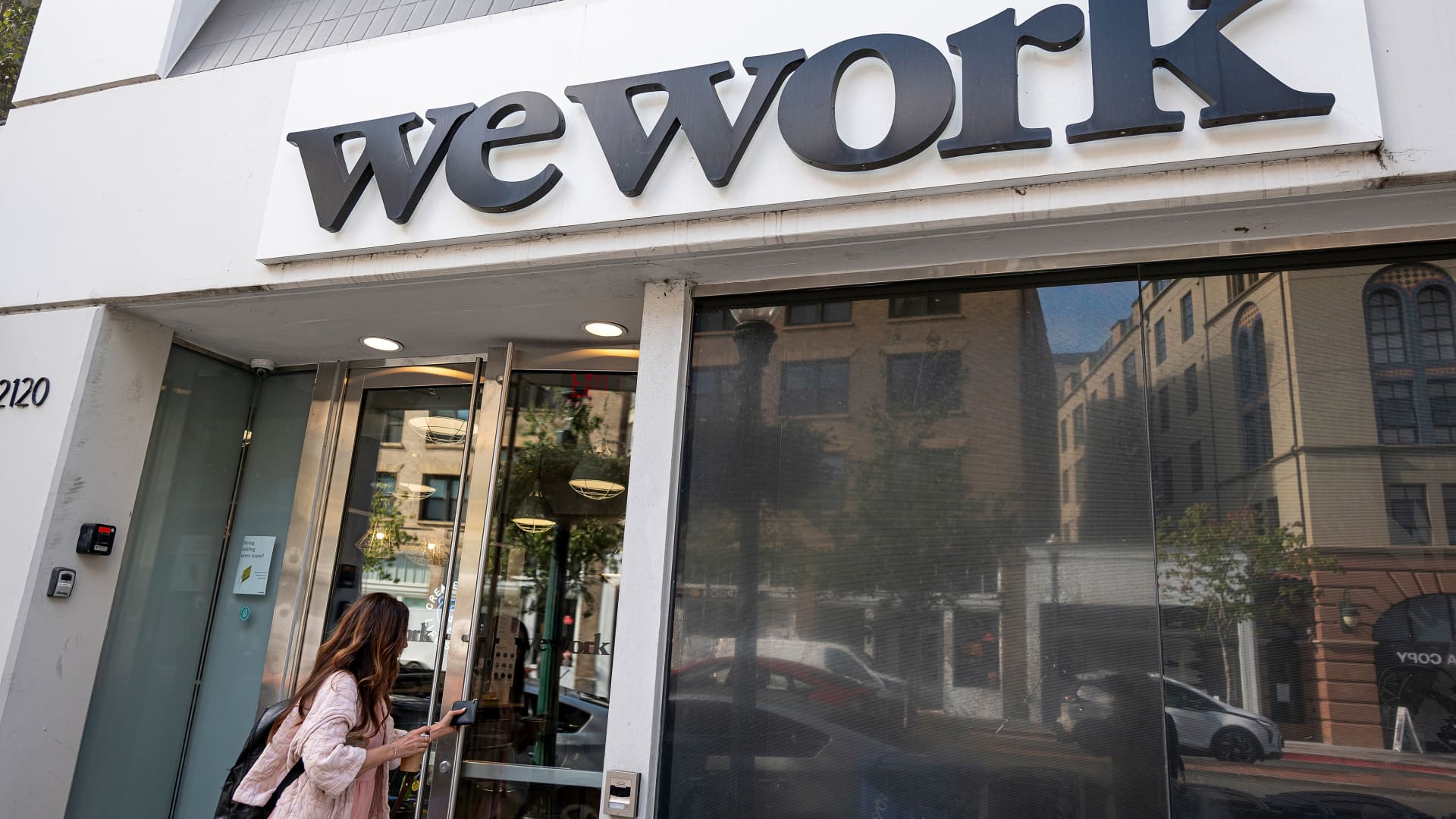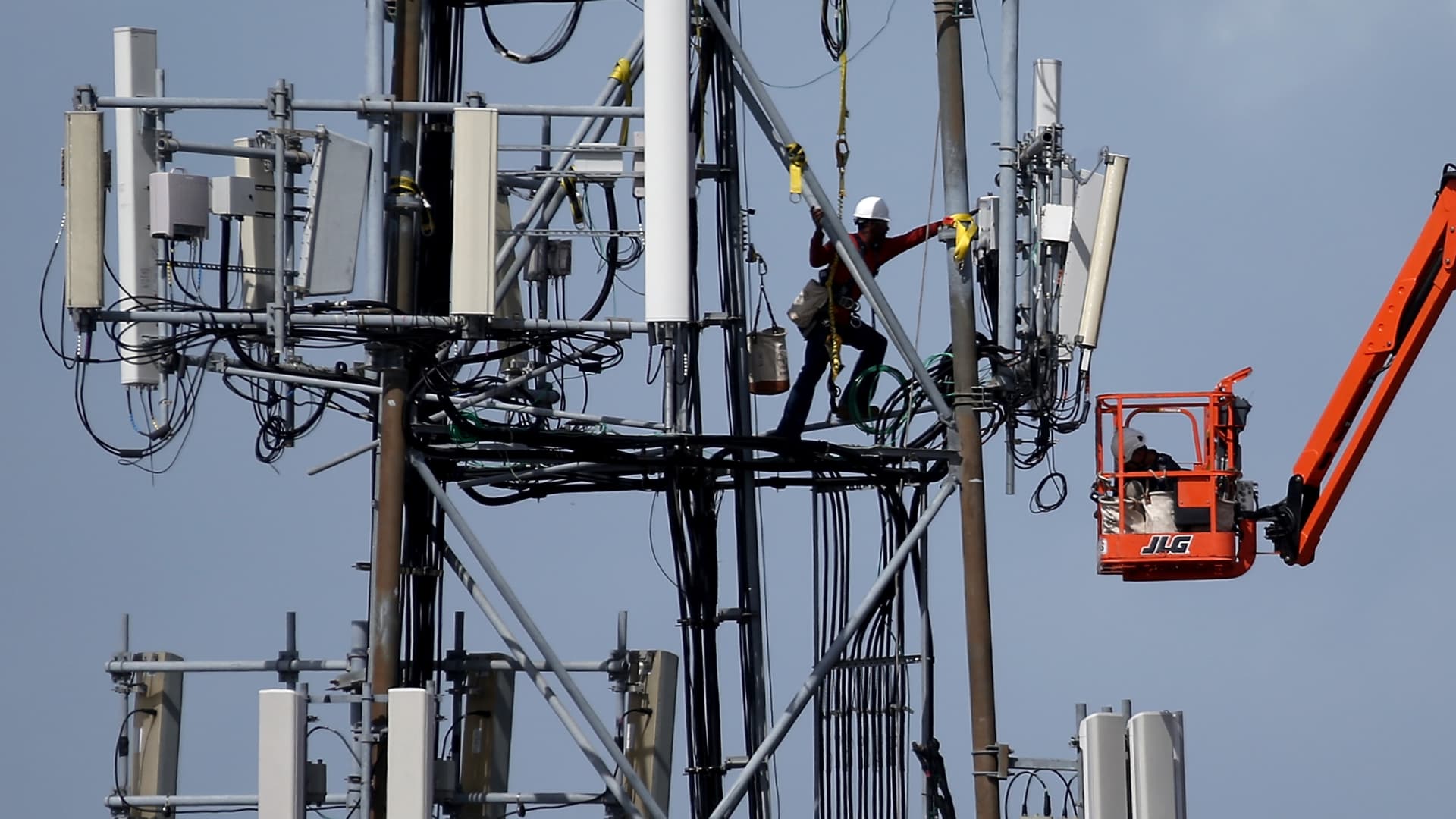
A WeWork co-working office space in Berkeley, California, on Wednesday, Aug. 9, 2023.
David Paul Morris | Bloomberg | Getty Images
WeWork, the office-sharing company once valued at $47 billion, said Friday it will undergo a 1-for-40 reverse stock split to try and keep its stock from being delisted.
The shares fell 11% after the announcement, closing at 14 cents. They’ve been trading under $1 since late March, and the company’s market cap now sits at around $300 million.
“The Reverse Stock Split is being effected to regain compliance with the $1.00 per share minimum closing price required to maintain continued listing on the New York Stock Exchange,” WeWork said in a filing with the SEC.
The reverse split will take effect after the close of trading on Sept. 1, the company said. The move will do nothing to improve the company’s financials or valuation but, based on Friday’s close, it would lift the stock price to $5.60. Failure to maintain a $1 share price for 30 days can trigger a delisting by the NYSE.
With or without a higher stock price, WeWork is in dire straits. Last week, the company said that its mounting losses and dwindling cash “raise substantial doubt about our ability to continue as a going concern.”
WeWork had a net loss in the first half of this year of $700 million after losing $2.3 billion in 2022. As of June 30, it had $205 million in cash and equivalents and total liquidity of $680 million. It has $2.91 billion in long-term debt.
The company has suffered one of the most spectacular corporate collapses in recent U.S. history over the past few years. Valued five years ago at $47 billion by Masayoshi Son’s SoftBank, the company tried and failed to go public in 2019. With its business already struggling, the pandemic caused further pain as many companies abruptly ended their leases, and the economic slump that followed led even more clients to close their doors.
WeWork was taken public in 2021 through a special purpose acquisition company, or SPAC. Since the end of 2021, the stock has lost 98% of its value.
WATCH: CNBC’s Andrew Ross Sorkin gets interview with WeWork founder Adam Neumann








